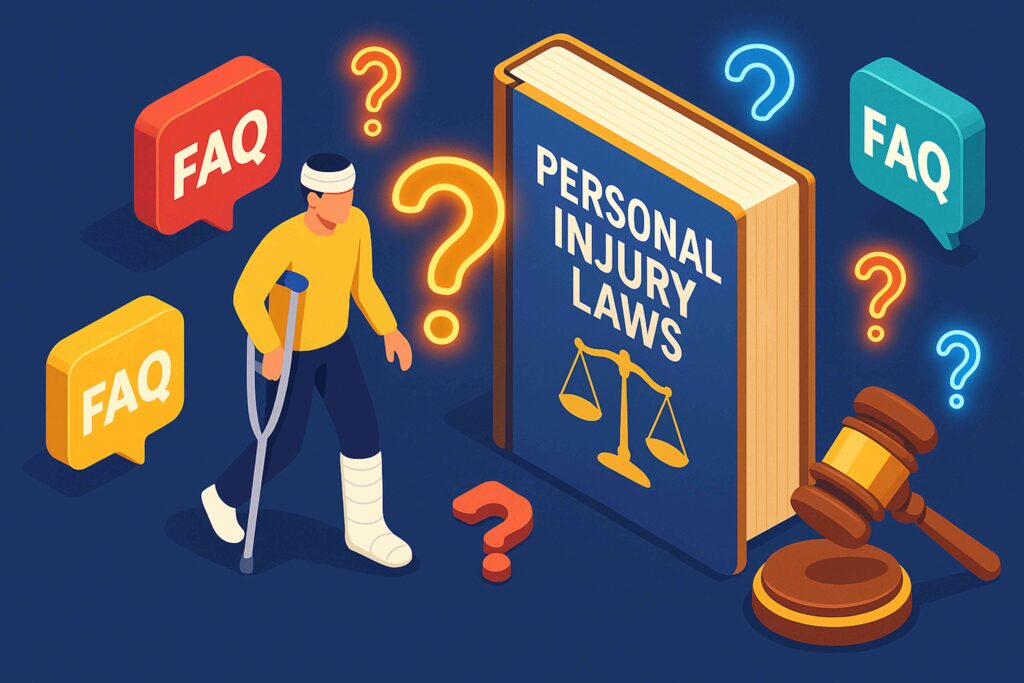Introduction
Imagine waking up one morning to find your life upended by an accident you didn’t cause—medical bills piling up, lost wages, and the stress of battling insurance companies. In these moments, a seasoned personal injury lawyer becomes more than an advisor: they’re your advocate, strategist, and lifeline. This comprehensive guide dives deep into everything you need to know, from common case types to fee structures, so you can face the road ahead with clarity and confidence.
Why You Might Need a Personal Injury Lawyer
Hiring a personal injury lawyer can be crucial when:
- Your injuries are severe and your medical treatment is ongoing.
- Liability is disputed by the at-fault party or their insurer.
- The insurance company offers an unrealistically low settlement.
- You’re unfamiliar with legal procedures or deadlines (statutes of limitations vary by state).
- You want to maximize your compensation for medical bills, lost wages, and emotional distress.
An experienced attorney will handle negotiations, gather evidence, and, if necessary, take your case to trial—so you can focus on recovery and rebuilding.

Understanding Common Types of Personal Injury Cases
Personal injury law covers a wide spectrum of incidents. Here are the most prevalent:
| Type of Case | Description | Estimated Share of Cases |
|---|---|---|
| Motor Vehicle Accidents | Collisions involving cars, trucks, motorcycles, and pedestrians. | ~40% |
| Slip-and-Fall (Premises) | Injuries from hazardous conditions in public or private properties. | ~15% |
| Medical Malpractice | Claims against healthcare providers for negligence. | 5–10% |
| Product Liability | Harm caused by defective or dangerous products. | 5% |
| Dog Bites | Injuries from animal attacks, often governed by “strict liability” statutes. | ~3% |
| Workplace Accidents | Injuries not covered by workers’ compensation (e.g., third-party lawsuits). | ~7% |
In the U.S., roughly 126.3 personal injury cases occur per 1,000 people annually—translating to about 39.5 million incidents requiring medical care each year .
How Personal Injury Lawyers Get Paid
Contingency Fees: No Win, No Fee
Most personal injury lawyers work on a contingency fee basis: they receive a percentage of your recovery only if you win. Typical ranges are:
| Fee Structure | Description |
|---|---|
| Contingency (33–40%) | Standard for personal injury cases—you pay nothing upfront; fees are taken from your award . |
| Hourly | Charged per hour; rare in PI, usually for consultations or complex litigation. |
| Flat Fee | Fixed amount for specific services; uncommon in personal injury. |
Note: A Nevada ballot initiative recently proposed capping contingency fees at 20%—a move opponents argue could limit access to legal counsel for low-income claimants .
The Personal Injury Claim Process Explained
1. Initial Consultation
Your first meeting is usually free. The lawyer:
- Reviews your case facts and documentation.
- Explains your rights, potential outcomes, and fee structure.
- Determines if liability and damages can be proven .
2. Investigation & Demand
- Gather Evidence: Medical records, accident reports, witness statements.
- Calculate Damages: Medical bills, lost wages, pain and suffering.
- Demand Letter: Sent to the insurer outlining your claim and requested compensation.
3. Negotiation & Litigation
- Negotiation: Back-and-forth with the insurance company.
- Filing Suit: If negotiations stall, the lawyer files a lawsuit.
4. Trial & Settlement
- Settlement: Around 67% of claims settle before trial .
- Trial: Only 3–4% of personal injury cases go to trial, per the Bureau of Justice Statistics .
- Judgment or Verdict: If successful, you receive court-ordered damages.
On average, motor vehicle injury cases resolve in about 14 months , though complex cases (e.g., medical malpractice) may take years.
Key Qualities to Look for in a Personal Injury Lawyer
- Experience & Track Record: Look for attorneys with a proven history in your specific case type.
- Communication: They should explain legal jargon in plain language.
- Resources: A firm with the budget for expert witnesses and thorough investigations.
- Compassion & Empathy: A lawyer who genuinely cares about your well-being.
“I chose my attorney because she not only won my case but checked in on my recovery every week—legal skill plus human touch made all the difference.”
Tips for Choosing the Right Personal Injury Lawyer
- Read Reviews & Testimonials: Check Google, Avvo, or your state bar’s website.
- Ask the Right Questions:
- How many cases like mine have you handled?
- What were the outcomes?
- Who will handle my case day-to-day?
- Compare Fee Agreements: Understand exactly what percentage and costs you’ll pay.
- Trust Your Instincts: A strong rapport and clear communication are essential.
For more on vetting attorneys, see our guide on How to Choose the Right Lawyer.
Conclusion
Facing a personal injury claim can be overwhelming. But with the right lawyer by your side—one who combines deep expertise, clear communication, and genuine empathy—you can navigate the process confidently and secure the compensation you deserve.
Ready to take the next step?
- Schedule a free consultation today to discuss your case in detail.
- Explore related resources in our Personal Injury Law section – A Comprehensive guide to personal injury laws.
Your recovery journey starts with one call. Don’t wait—get the help you need now.